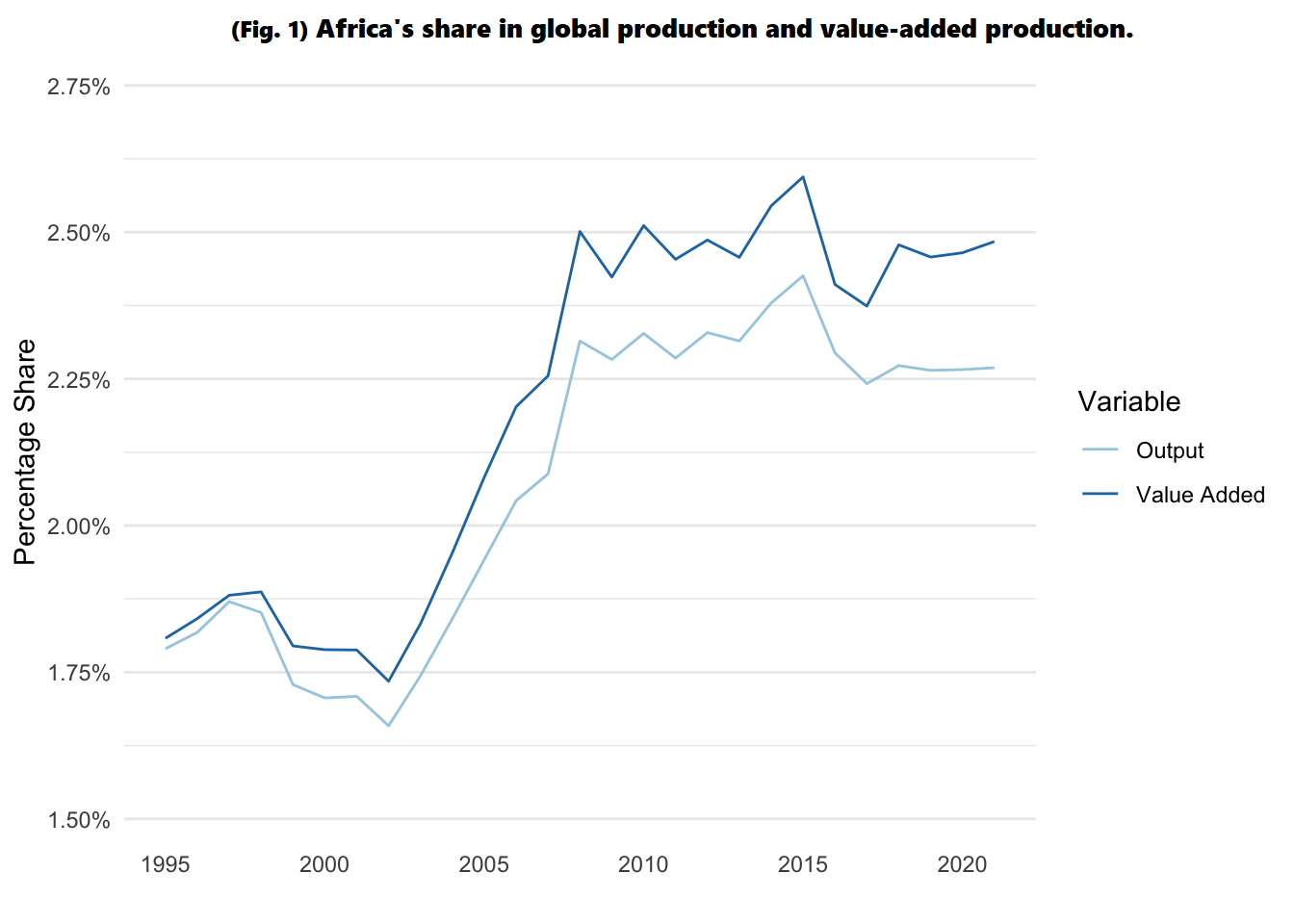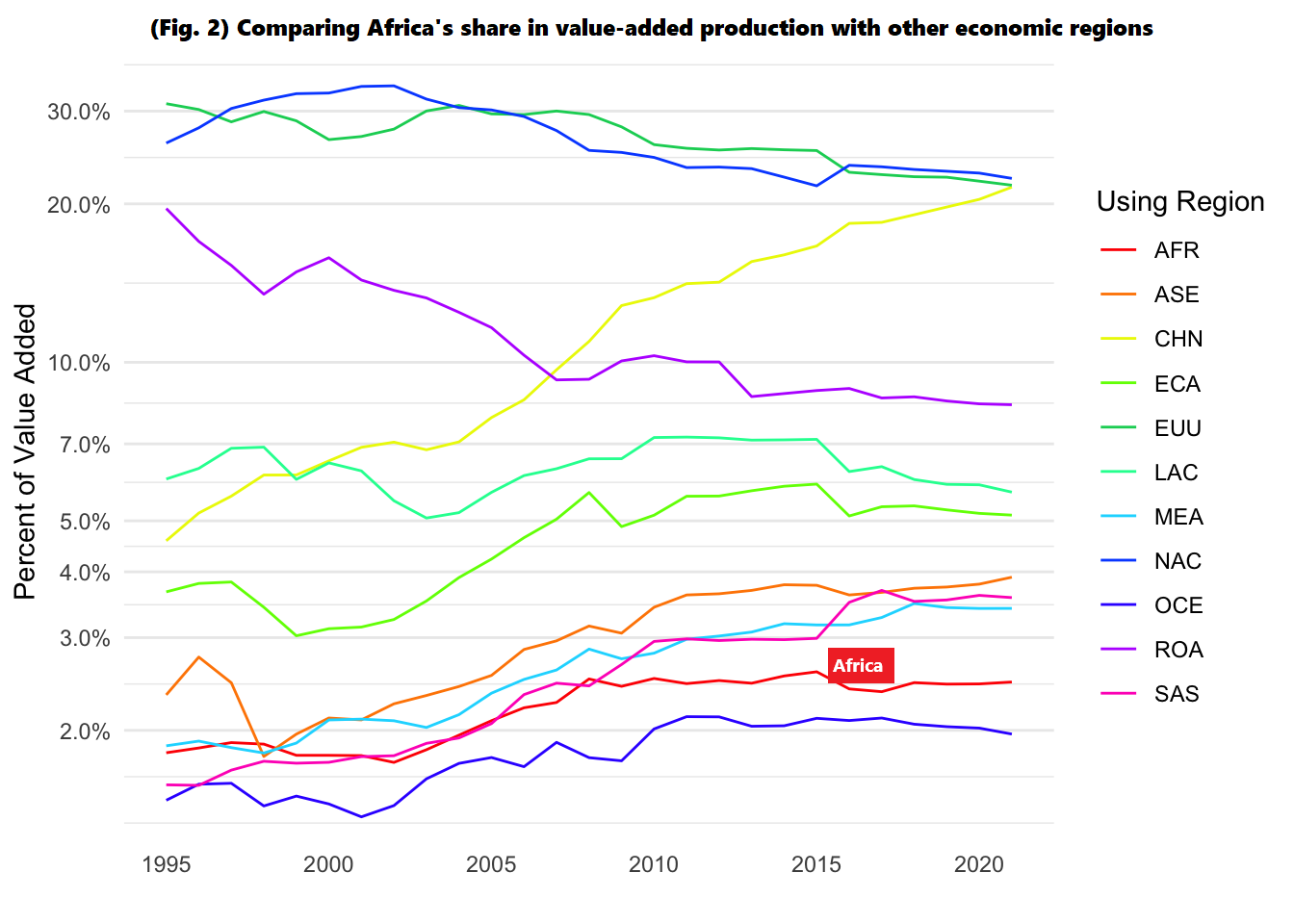
First published 7 July 2023
Like everything I write on Next Wave, this is probably not a silver bullet, but it undoubtedly an approach worth thinking about.
Is it too controversial to say investors should not invest in Africa because it will have a large consumer market, will be the labour capital of the world and has a few of the fastest growing economics measured by nominal GDP? If you were an investor in the mid-eighties to late nineties, why did you put your money in communist China? Because of its large consumer market?
A lot of what I hear when Africans—in government and the private sector—talk about business is how they can serve local consumption. On the other hand, when the rest of the world talks about the African business opportunity, it is often as a source of primary input that will be further processed for global consumers. Except in development circles, and even there, it slips in once in a while. Along with labour force projections, migration concerns and whatnot.
The energy transition agenda has intensified this primary production focus. And the continent has mostly accepted it. Africa needs thinkers and entrepreneurs on the ground who will keep local consumption in mind, but also orient towards global markets and later continental markets.
Most people who read this newsletter work in or run startups or businesses that are adjacent to Africa’s technology ecosystem. So how or why is this important for you? One answer is that better technology (especially hardware) will play a huge role in orienting African consumption towards global markets, but also that pure software layers can smoothen over the rough uncompromising edges when the right policies align. For example, hardware solutions like cold-chain storage will be an indispensable part of improving agricultural production and processing while software can help manage logistics inside the continent and create leaner businesses that are more productive and efficient. Everyone knows this, so it is not a novel idea. But applying these ideas to only meet local demand is a nearsighted and artificial limit to the entrepreneurial, investment and policy reform ambition that can lead to significant overall economic improvement.
There are positive effects of focusing on local markets, but the bitter tradeoffs include deep structural market fragmentation, a.k.a. informal markets, or debilitating and inefficient monopolies. Unfortunately, we have abundant examples of both. Markets that are structurally broken, and lumbering uncompetitive monopolies and oligopolies that are self-contained in their mediocre but profitable local dominance. Every country has at least one example. Reorienting from a local market focus to a global value chain focus will mean replacing the crude workarounds that make up the informal sector with efficient programming of software, hardware and services. Here’s why.
Partner Content:
Work, create, collaborate at ThinkSpace, an optimised workspace for the modern Lagos professional
Africa is lagging in global production and value-addition
Figure 1 is Africa’s share of global production and value-added production from the 1990s to 2020. As the chart reveals, both production and value-added production are embarrassingly low. In my opinion, it is what you get when a significant portion of your production (in agriculture, for example) is for local processing (cassava to eba, maize to unga, etc.) and consumption, but it still fails to meet local consumption needs. Figure 2 makes the disparity between value-added African produce and what is obtainable clearer.

Source Kiel Institute for the World Economy.

Source Kiel Institute for the World Economy.
Is the problem that there is no market for more value-added African produce? The answer is somewhere between ‘How can we know?’ and a resounding no. And this is because we have not made much of an effort, especially in today’s world where you do not even need to produce finished products to increase our participation in the global value chain.
Value addition has moved beyond producing finished goods to intermediate production
Writing for tralac, John Stuart, an economist and policy analyst points out that, “the bulk of global trade today (about 70%) is not even in finished products, but in intermediate products: items that are used in the further manufacture of products or the repair of existing products.” In other words, most of what is traded globally is not finished products, but components that are needed to finish a product or maintain it. Per data from the World Bank’s World Integrated Trade Solution, sub-Saharan Africa imported more than $14 billion of these intermediate products in 2020, up from just over $11 billion in 2015. The spare part trade is a big portion of the China-Africa trade as my Nigerian Igbo brothers will, no doubt, attest.
All of Africa’s competitiveness is in primary production. This leaves a lot of space which informal attempts at value-addition struggle to fill partly because of a lack in standardisation. It is the reason why small-scale manufacturers in Aba, Nigeria, will slap on a “Made in Taiwan” label on electronics or a “Made in Italy” on shoes. One way to look at it is to criticise the apparent dishonest display. The other way to look at it is to see the unspoken appeal to what is considered the standard. I remember speaking to some guys in Enugu, Nigeria, whose company (funded by All-On) built quality solar inverters but their wholesale partners chose to add “Made in Taiwan” labels to the inverter packs, because customers wouldn’t consider “Made in Nigeria” good enough, even though it was better in many cases and had better and trained local support and readily available spare.
Partner Content:
Join Olu Akanmu, President and co-CEO OPay Nigeria, at DBN Techpreneurs Summit 2023
Made in Taiwan, Made in Japan and recently, Made in China were all considered a sign of poor quality, but now even the best iPhones are proudly Made in China.
A lot of the time the barrier to accessing global markets comes down to efficiency, not even quality. What is the use of investing in a farm that produces quality fresh produce if I can’t get it to customers in Singapore on time and in a dependable manner?
The foundations of Taiwan’s export economy was laid in the relatively smooth Taiwan-US shipping when they were known for producing only umbrellas. That efficiency is key to how Taiwan now runs the world’s IT infrastructure backbone today through its chipmaking giant, TSMC.
Simple and boldly executed strokes of the pen have a part to play certainly. But so does the collective thinking of what it means to be an African entrepreneur. Sure, investment in Africa because there is so much opportunity to make gazillions on the continent. But what about “Invest in Africa because we are using our primary production to deepen our participation in global value chains?”
We’d love to hear from you
Psst! Down here!
Thanks for reading The Next Wave. Subscribe here for free to get fresh perspectives on the progress of digital innovation in Africa every Sunday.
Please share today’s edition with your network on WhatsApp, Telegram and other platforms, and feel free to send a reply to let us know if you enjoyed this essay
Subscribe to our TC Daily newsletter to receive all the technology and business stories you need each weekday at 7 AM (WAT).
Follow TechCabal on Twitter, Instagram, Facebook, and LinkedIn to stay engaged in our real-time conversations on tech and innovation in Africa.

Abraham Augustine,
Senior Reporter, Business and Insights
TechCabal.



























